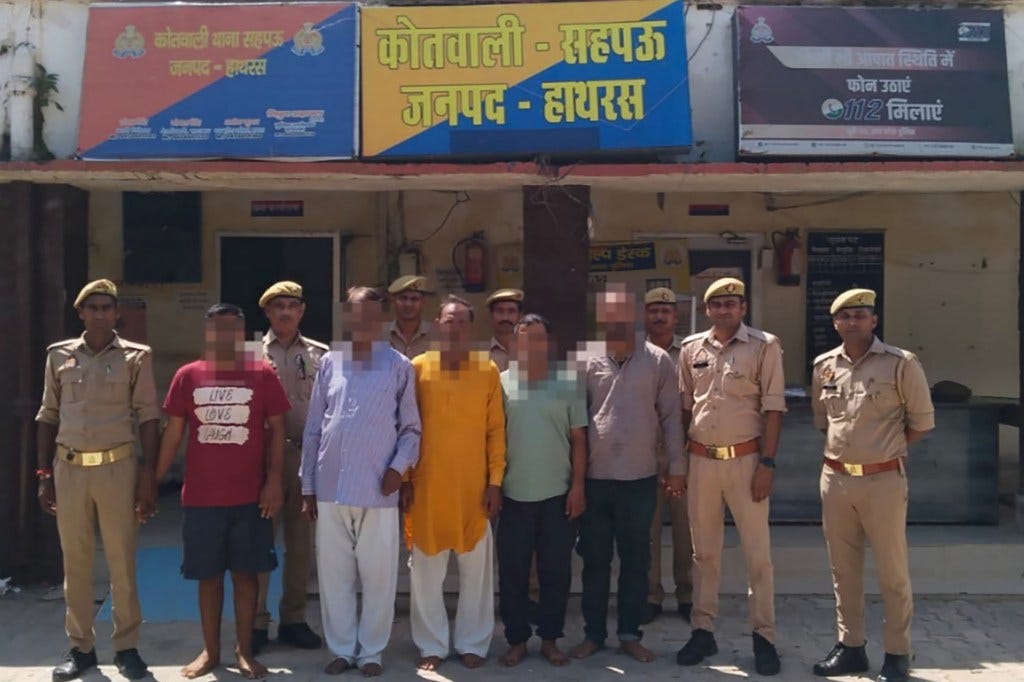Black magic at Lilavati hospital and Rs 1500 crore fraud
EXPLAINED
Happy Wednesday! If you thought your midweek blues were bad, wait till you hear about what went down at Lilavati Hospital.
Yes, we’ve officially crossed into Bollywood thriller territory.
So, was this just a classic case of financial mischief, or was something more sinister at play?
Let’s dive in…
📌 The financial controversy
The Lilavati Kirtilal Mehta Medical Trust (LKMMT), which oversees the operations of Lilavati Hospital, has alleged that former trustees misappropriated funds exceeding ₹1,500 crore over the past two decades.
These allegations are rooted in findings from a forensic audit, which uncovered significant financial irregularities, fund siphoning, and manipulations by previous trustees, many of whom are reportedly non-resident Indians based in Dubai and Belgium.
Prashant Mehta, the Permanent Resident Trustee of LKMMT, emphasized the gravity of the situation, stating that such misconduct not only betrays the trust placed in these individuals but also threatens the very mission of the hospital.
The misappropriated funds, he noted, could have been utilized to establish additional healthcare facilities, thereby benefiting a larger segment of society.
📌 The allegations of black magic
Beyond the financial discrepancies, the current trustees have reported discovering seven urns containing human hair and skulls buried within the hospital premises, suggesting the performance of black magic rituals.
These disturbing findings were unearthed beneath the office floors of the current trustees, following tips from former employees.
Such practices, if confirmed, not only violate ethical and legal standards but also cast a dark shadow over the institution's reputation.
Parambir Singh, the hospital's executive director and former Mumbai Police Commissioner, highlighted the negative atmosphere these discoveries have fostered, further complicating the hospital's operational environment.
📌 So, what’s next?
In response to these revelations, LKMMT has filed multiple First Information Reports (FIRs) against the former trustees and associated individuals.
The Economic Offences Wing (EOW) of the Mumbai Police is currently investigating these cases, focusing on charges ranging from forgery and cheating to fund misappropriation.
Additionally, the Enforcement Directorate has been approached to probe potential violations under the Prevention of Money Laundering Act.
The intertwining of financial fraud with alleged black magic practices, in this case, is unprecedented and raises concerns about the lengths individuals may go to secure power and control within influential institutions.
📌 Wait, there’s more
The Lilavati Hospital case is not an isolated incident. India has witnessed several crimes linked to black magic and occult practices, often driven by superstition, greed, or the desire for power.
For instance, in September 2024, an 11-year-old boy named Kritarth was tragically sacrificed in a black magic ritual intended to bring success to a school in Hathras, Uttar Pradesh.
The school's owner and several associates were arrested for their involvement in this heinous act.
Between 2014 and 2021, India reported 103 cases of human sacrifice linked to occult practices, highlighting a disturbing trend that blends deep-seated superstitions with criminal intent.
These incidents often involve vulnerable individuals and are carried out under the guise of seeking prosperity or resolving personal issues.
What can law enforcement do to stop this?
Addressing the dual challenges of financial fraud and crimes associated with black magic requires a multifaceted approach:
While laws exist to combat financial fraud and practices like black magic, their enforcement needs to be stringent. Authorities must ensure that loopholes are closed and that perpetrators face swift justice.
Educating the public about the dangers of superstitions and promoting scientific temper can reduce the influence of occult practices. Grassroots campaigns and community engagement are vital in this regard.
Organizations, especially those in the healthcare and education sectors, should implement robust auditing and oversight mechanisms to detect and prevent financial irregularities and unethical practices.
Providing support to victims and potential victims of such fraudulent and harmful practices can deter perpetrators and assist in rehabilitation.
So, that’s it for today. If you enjoyed this edition, subscribe to hear from us every day!
See ya 👋



